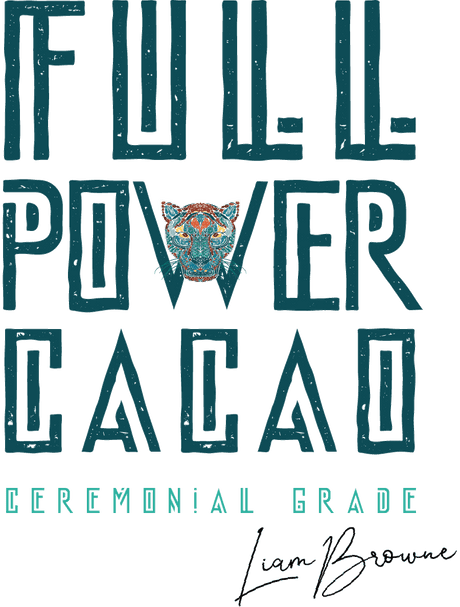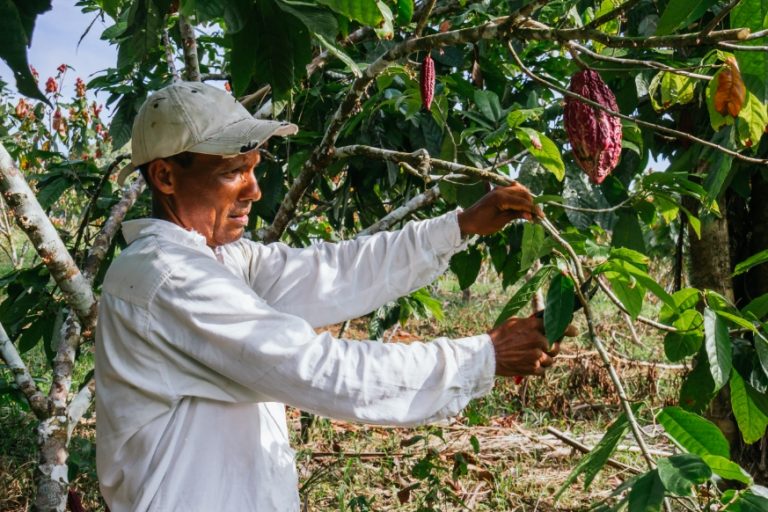FULL POWER CACAO finds it origins in Venezuela where our Cacao is planted, grown, picked and processed by family farmers. They are all part of the “PLAN MÁS CACAO” project which is a plan of growth for the farmers of Venezuelan cacao, to improve their quality of life through the productivity of the land, giving advice for handling the crops or by presence and direct contact with them. This social program promotes sustainable development by promoting social inclusion and providing lasting economic growth for the farmers. The plan seeks to generate greater well-being for workers and farmers. This social program promotes sustainable development by promoting social inclusion and providing lasting economic growth for the farmers.
The plan is committed to taking special care of the environment, working on improving productivity levels in Cacao areas and seeking to improve the levels of fermentation, drying and traceability of cacao, vital to obtain fine Cacao products.
The committed approach to improve the quality of life of farmers comes from new training schedules on efficient agronomic management and increased productivity indexes, pruning of shade management, plantation renovation, technical support, strengthening of post-harvest and its traceability resulting in a sustained improvement in the quality of life of associated farmers.
The implementation of this project will improve the competitiveness of the cacao sector in Venezuela through the development of technological, organisational and institutional innovations that will directly benefit 500 farmers totalling 2,000 people including their families and, with the objective to reach 3,000 farmers in the medium term totalling ~ 12,000 people including their families and deliver benefit in terms of sustainability and inclusion, facilitating the entry of Venezuelan cacao to differentiated markets worldwide in the process.
In Latin America and the Caribbean, cacao is grown from Mexico to Brazil. Approximately 90% of the production is grown by family farmers, a sector that still has a high level of atomisation and a low level of organisation and integration into the value chain. These family farmers turn to middlemen to commercialise the grain, who in turn sell it to large companies. A few multinational companies concentrate both the transformation and the production of chocolate.
In recent years, studies have been carried out on the nutritional and health properties of Cacao. The results indicate that Cacao flavonoids could inhibit the oxidation of low-density lipoprotein, thus contributing to the prevention of cardiovascular diseases. Additionally, cocoa’s high antioxidant content has been shown to reduce cancer risk. Lecumberri et al (2006) * assure that the ingestion of six grams a day of chocolate for two weeks reduces blood pressure and improves the function of the endothelium of the arteries, and also the formation of nitric oxide favours the dilation of the same, decreasing the likelihood of thrombosis.
The “PLAN MÁS CACAO” project does not present negative environmental impacts. It is expected that the strengthening of capacities in the generation of validated models of sustainable Cacao production will collaborate with the development of new innovations that improve adaptation to environmental matters, and therefore productivity, food security, the well-being of family farmers, and the final consumer. The generation of new knowledge will reduce the negative impact on the environment, and therefore the vulnerability to any potential risk.
The implementation of this project will improve the competitiveness of the Cacao sector in Venezuela through the development of technological, organisational and institutional innovations that will directly and indirectly benefit 500 farmers totalling ~ 2,000 people including their families and, with the objective to reach 3,000 farmers in the medium term totalling ~ 1 2,000 people including their families and deliver the benefit that we propose in terms of sustainability and inclusion, facilitating the entry of Venezuelan cocoa to differentiated markets worldwide in the process.

